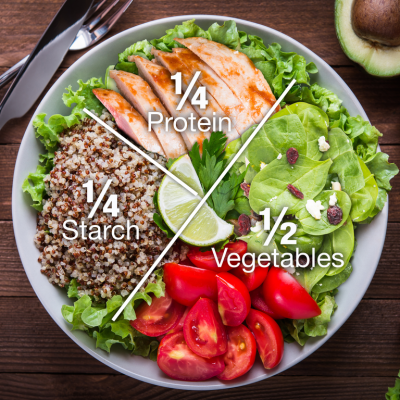Your Feet Are Two Good Reasons to Take Your Diabetes Seriously
Managing diabetes can be complex, but it shouldn’t mean missing out on the good things in life, like feeling the scrunchy sand under your feet, dipping your feet surf, long hikes in the park with your family. Keeping blood glucose levels within range can help prevent complications such as those that affect your feet1. High blood glucose can cause nerve damage (neuropathy) especially in the limbs (example both legs and feet). In addition, poor circulation caused by diabetes may lead to more serious problems like diabetic foot ulcer and infections and even deformity of the feet...
Read MoreBe On Target
Every person with diabetes should be treated according to their individual needs, hence you and your doctor will agree on an acceptable blood glucose (blood sugar) target range that will suit your therapy needs. If you do not know what is a target range for you, there are general guidelines for people with diabetes you can refer to. Below are the blood glucose target ranges recommended by our Malaysia’s Ministry of Health (MOH): ...
Read MoreProtect Your Heart, Control Your Blood Glucose Level
Persistent high blood glucose (blood sugar) levels can lead to diabetes related complications such as kidney disease, eye disease, numbness and weakness of hands and legs, but heart diseases have topped it all1. Action to be taken. The Ministry of Health (MOH) Malaysia recommends keeping control of your blood glucose...
Read MoreLearning From Your Blood Glucose Results
It's likely that your healthcare team has talked to you about the importance of checking your blood glucose (blood sugar). But many people don't realize just how much valuable information they can obtain from their blood glucose results. Blood glucose monitoring shows how your body handles the food you eat, how exercise affects those glucose levels and how the medication you are taking is working—as well as letting you know if your body has the fuel it needs throughout the day. Such information is essential to anyone who self-manages their diabetes. It's important to know that keeping...
Read MoreWhat Is Diabetes?
Diabetes is a chronic disease. Your blood glucose (blood sugar) levels are controlled by insulin, a hormone produced by your pancreas. When you eat, food gets broken down and glucose enters your bloodstream. Insulin takes the glucose out of your bloodstream and allows it to enter your cells where it is broken down and turned into energy. If you have diabetes, either you don’t have enough insulin or the insulin you do have doesn’t work to get the glucose out of your blood and into your cells. This is how your blood glucose ends up going higher than it should (hyperglycemia).1 3 main types of...
Read More3 Tips for A Healthier Plate
Your environment influences your ability to manage your diabetes. Willpower alone isn’t enough if temptation crosses your path over and over again. Follow these three simple steps to enjoy foods you like without breaking your meal plan. Step 1: Keep off-limit food off your plate. Clean out your refrigerator and get rid of snacks that can ruin your meal plan. Also take a look at fast-food temptations. Is walking by the fried food vendor a tough challenge? Take another route instead of testing your resolve with that aroma. Step 2: Rate your plate....
Read MoreDoes life get in the way of healthy eating?
How many times have you been told to just “eat better”? As if that’s such an easy thing to do. Sure, you know you should eat more vegetables (shouldn’t everyone?), and you dutifully count your carbs (or can recite the carbs in all of your meals from memory), but the time and effort it takes to “eat better” can make you feel even more stressed. Or bored. Everywhere you turn, you’re bombarded by images of food—the kind that makes your mouth water, but usually not the kind that’s high-fiber, low-fat, and full of nutrition. Instead of beating yourself up for not eating up to your ideals, take comfort—no one eats right, at...
Read MoreEating Healthy with Team Family
As a parent of a child with diabetes, you’re not only responsible for getting them to eat healthy when they’re sitting at the dinner table, you’re also teaching them how to make good choices when they’re on their own. Parenting can be tough, especially when kids start testing their independence and developing physically and emotionally. Sure, you know the difference between a healthy snack and movie theater popcorn, but do you ever feel like it’s not worth the argument? Here are some ideas to encourage kids to make healthy choices—with or without your reminders. Create a family-team atmosphere...
Read MoreThe Facts About Fats
We’ve all been there—standing in the grocery aisle thinking, “this little chocolate-covered, cream-filled snack cake doesn’t have that much more fat in it than a handful of peanuts. For an extra 4 grams of fat, I can really indulge.” Sure, the peanuts have 13 grams of fat and the snack cake only has 17 grams. But have you looked at the type of fats they contain or what effect they’ll have on your body? This is where the “good fat, bad fat” discussion becomes important. Finding bad fats There are two bad fats you need to watch for in foods: saturated fat and trans-...
Read MorePages
Be On Target
Every person with diabetes should be treated according to their individual needs, hence you and your doctor will agree on an acceptable blood glucose (blood sugar) target range that will suit your therapy needs. If you do not know what is a target range for you, there are general guidelines for people with diabetes you can refer to. Below are the blood glucose target ranges recommended by our Malaysia’s Ministry of Health (MOH): ...
Read MoreProtect Your Heart, Control Your Blood Glucose Level
Persistent high blood glucose (blood sugar) levels can lead to diabetes related complications such as kidney disease, eye disease, numbness and weakness of hands and legs, but heart diseases have topped it all1. Action to be taken. The Ministry of Health (MOH) Malaysia recommends keeping control of your blood glucose...
Read MoreLearning From Your Blood Glucose Results
It's likely that your healthcare team has talked to you about the importance of checking your blood glucose (blood sugar). But many people don't realize just how much valuable information they can obtain from their blood glucose results. Blood glucose monitoring shows how your body handles the food you eat, how exercise affects those glucose levels and how the medication you are taking is working—as well as letting you know if your body has the fuel it needs throughout the day. Such information is essential to anyone who self-manages their diabetes. It's important to know that keeping...
Read MoreWhat Is Diabetes?
Diabetes is a chronic disease. Your blood glucose (blood sugar) levels are controlled by insulin, a hormone produced by your pancreas. When you eat, food gets broken down and glucose enters your bloodstream. Insulin takes the glucose out of your bloodstream and allows it to enter your cells where it is broken down and turned into energy. If you have diabetes, either you don’t have enough insulin or the insulin you do have doesn’t work to get the glucose out of your blood and into your cells. This is how your blood glucose ends up going higher than it should (hyperglycemia).1 3 main types of...
Read More3 Tips for A Healthier Plate
Your environment influences your ability to manage your diabetes. Willpower alone isn’t enough if temptation crosses your path over and over again. Follow these three simple steps to enjoy foods you like without breaking your meal plan. Step 1: Keep off-limit food off your plate. Clean out your refrigerator and get rid of snacks that can ruin your meal plan. Also take a look at fast-food temptations. Is walking by the fried food vendor a tough challenge? Take another route instead of testing your resolve with that aroma. Step 2: Rate your plate....
Read MoreDoes life get in the way of healthy eating?
How many times have you been told to just “eat better”? As if that’s such an easy thing to do. Sure, you know you should eat more vegetables (shouldn’t everyone?), and you dutifully count your carbs (or can recite the carbs in all of your meals from memory), but the time and effort it takes to “eat better” can make you feel even more stressed. Or bored. Everywhere you turn, you’re bombarded by images of food—the kind that makes your mouth water, but usually not the kind that’s high-fiber, low-fat, and full of nutrition. Instead of beating yourself up for not eating up to your ideals, take comfort—no one eats right, at...
Read MoreEating Healthy with Team Family
As a parent of a child with diabetes, you’re not only responsible for getting them to eat healthy when they’re sitting at the dinner table, you’re also teaching them how to make good choices when they’re on their own. Parenting can be tough, especially when kids start testing their independence and developing physically and emotionally. Sure, you know the difference between a healthy snack and movie theater popcorn, but do you ever feel like it’s not worth the argument? Here are some ideas to encourage kids to make healthy choices—with or without your reminders. Create a family-team atmosphere...
Read MoreThe Facts About Fats
We’ve all been there—standing in the grocery aisle thinking, “this little chocolate-covered, cream-filled snack cake doesn’t have that much more fat in it than a handful of peanuts. For an extra 4 grams of fat, I can really indulge.” Sure, the peanuts have 13 grams of fat and the snack cake only has 17 grams. But have you looked at the type of fats they contain or what effect they’ll have on your body? This is where the “good fat, bad fat” discussion becomes important. Finding bad fats There are two bad fats you need to watch for in foods: saturated fat and trans-...
Read More








